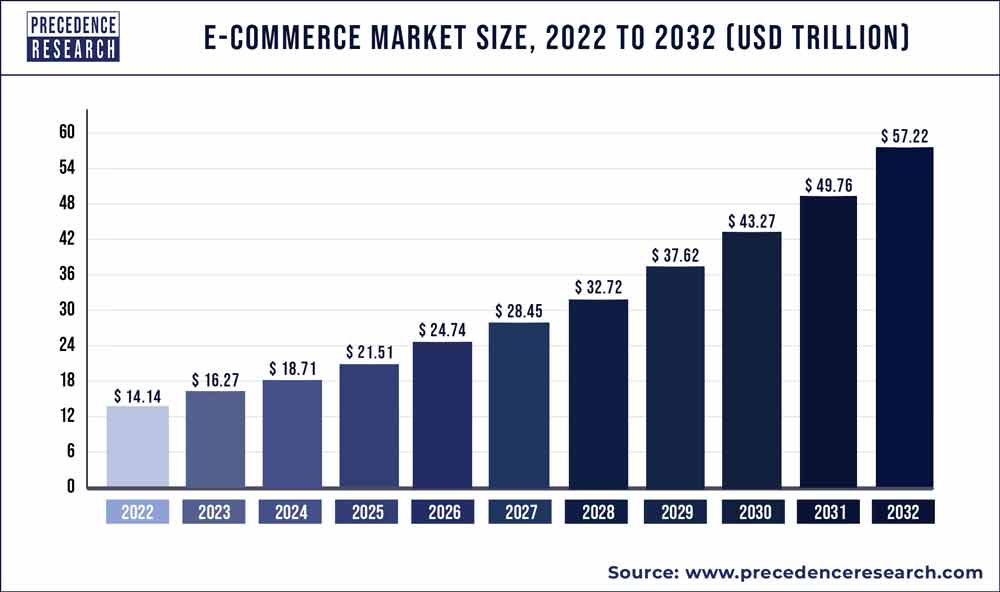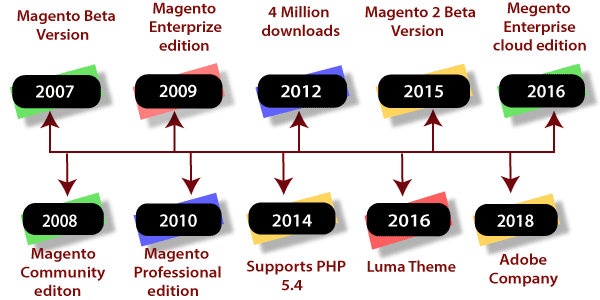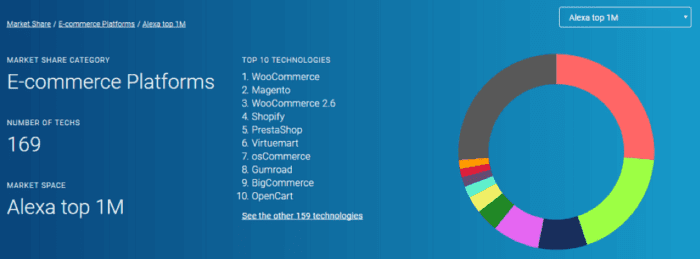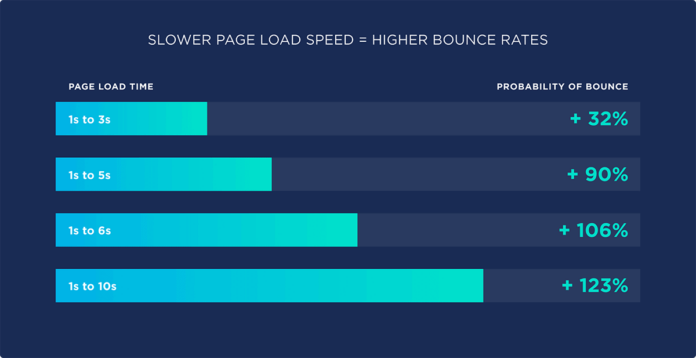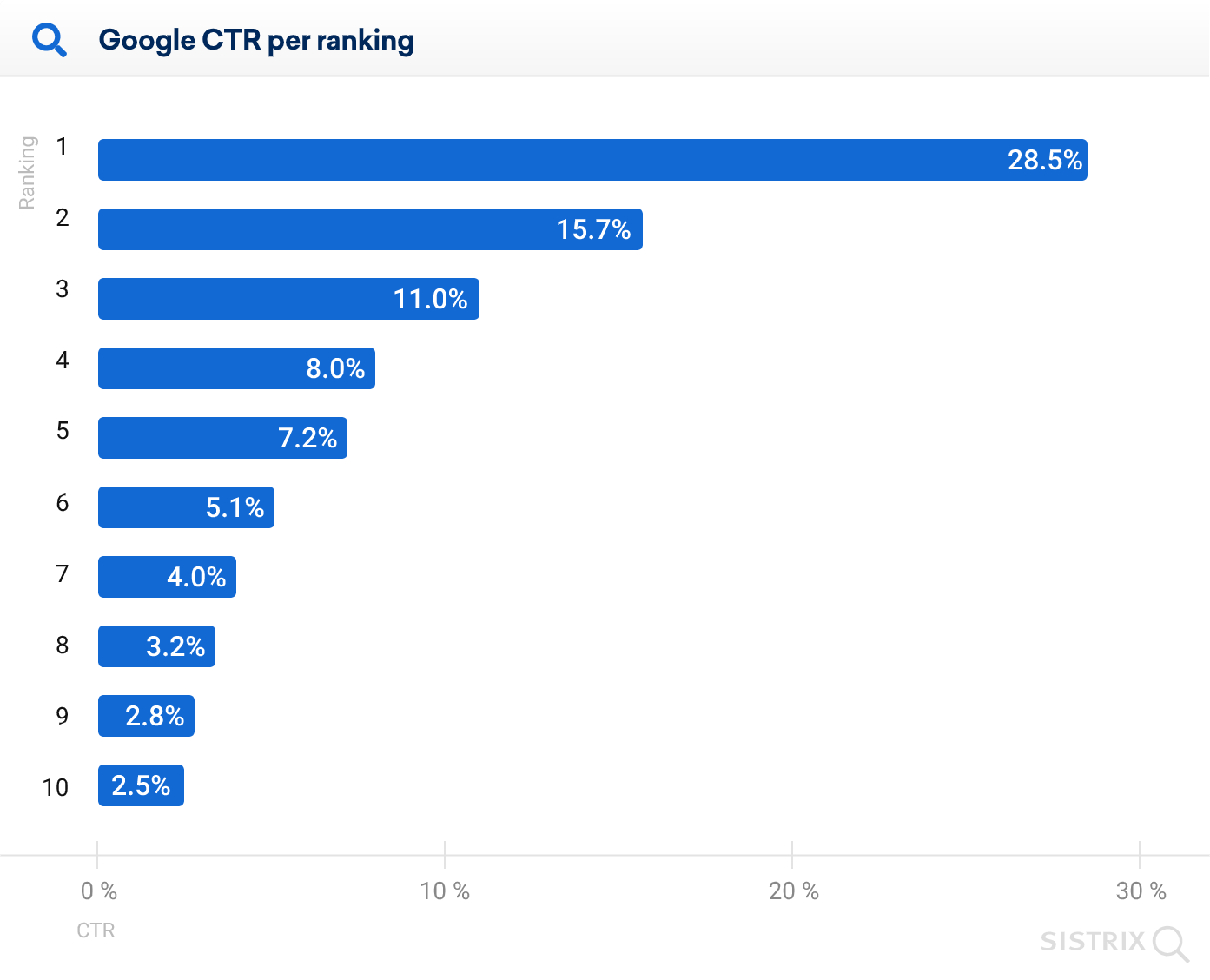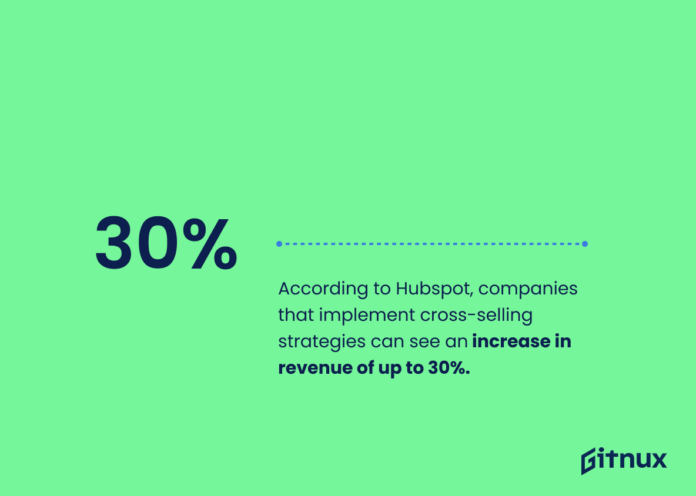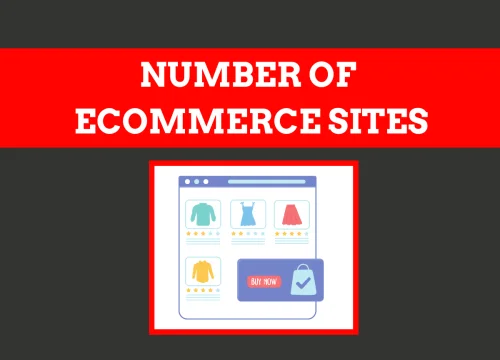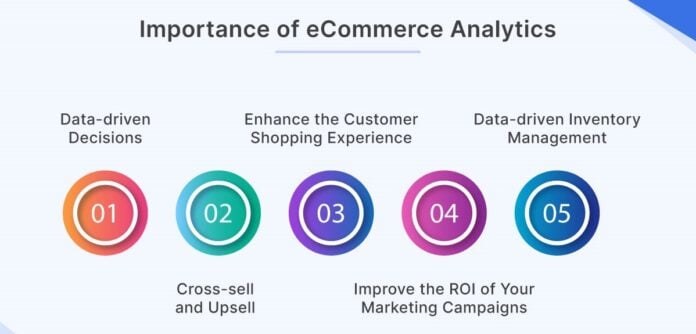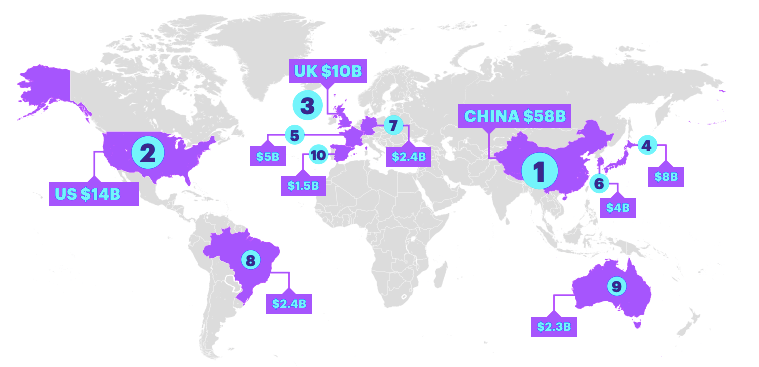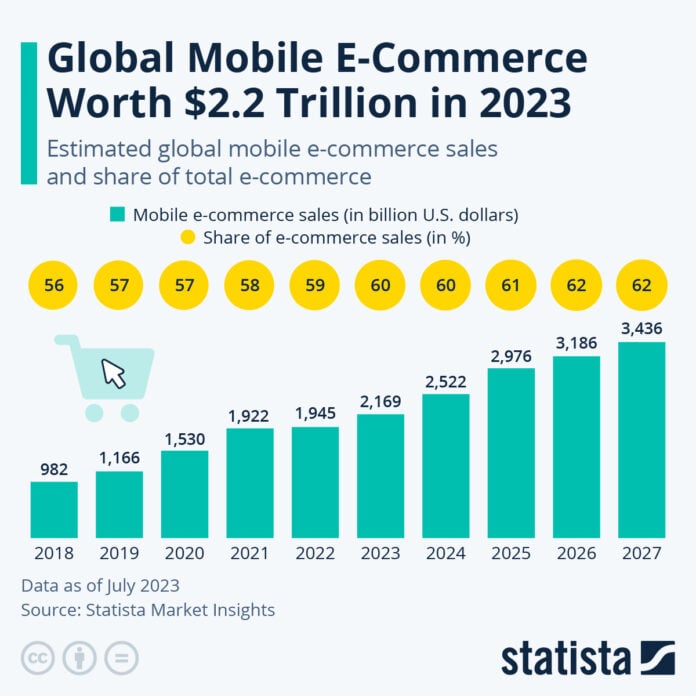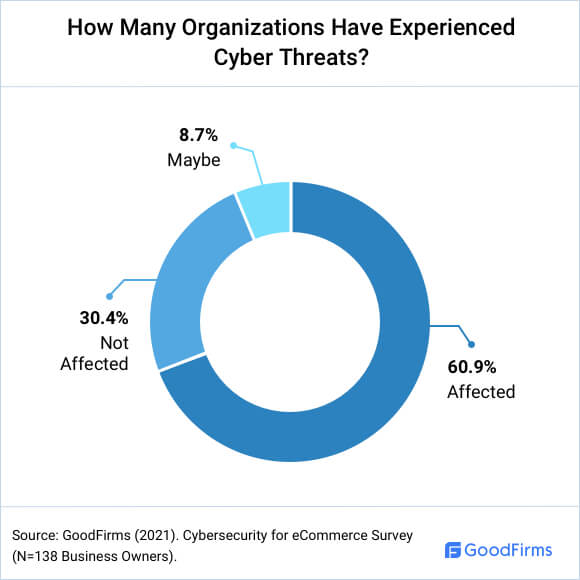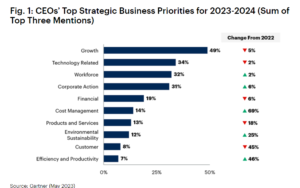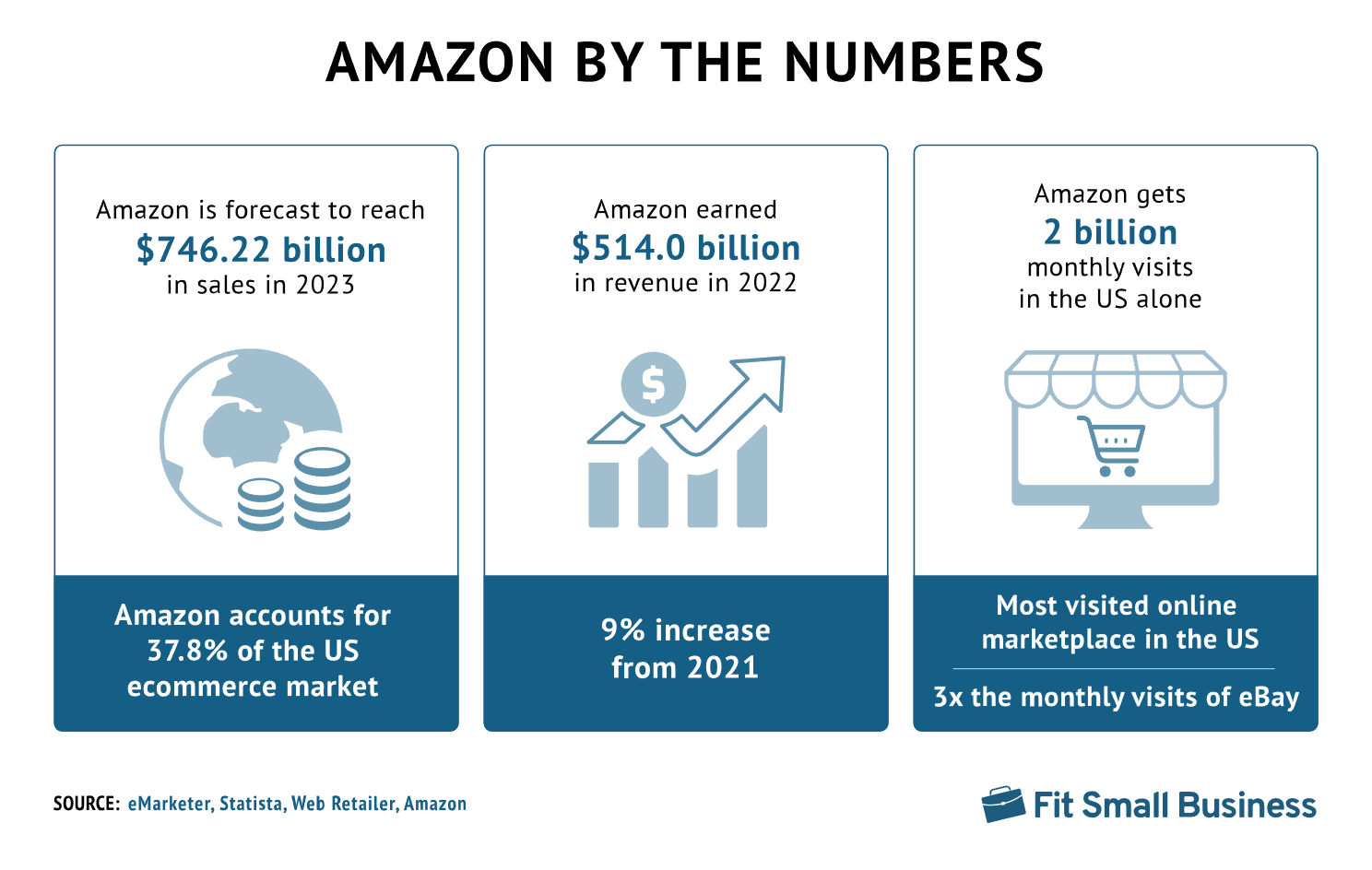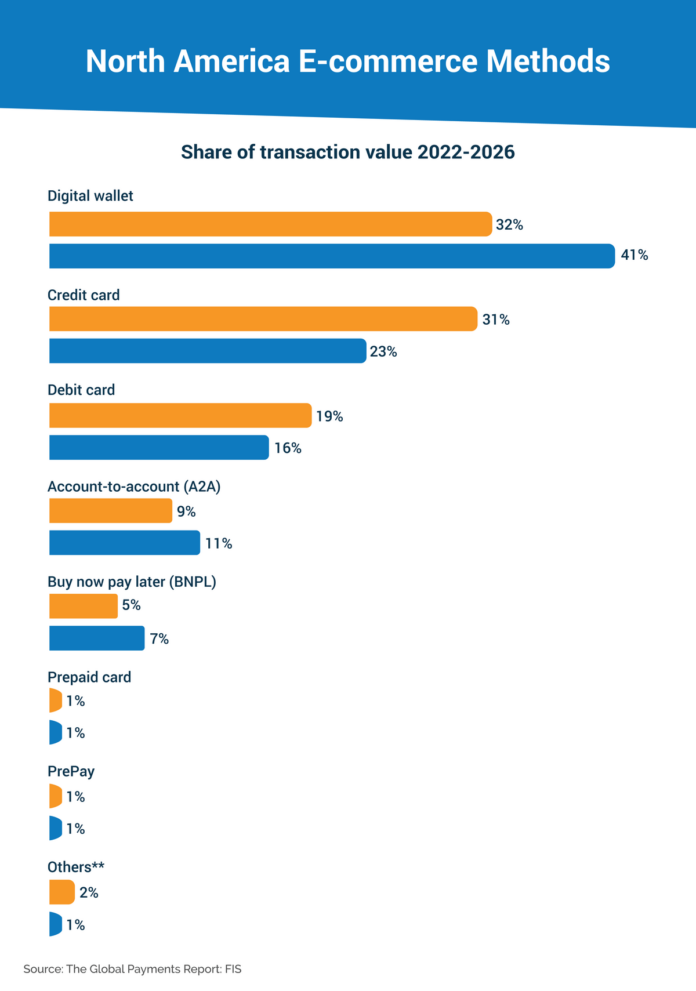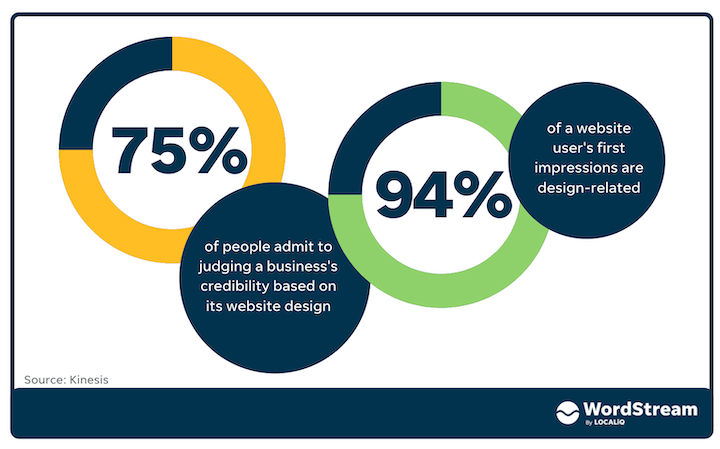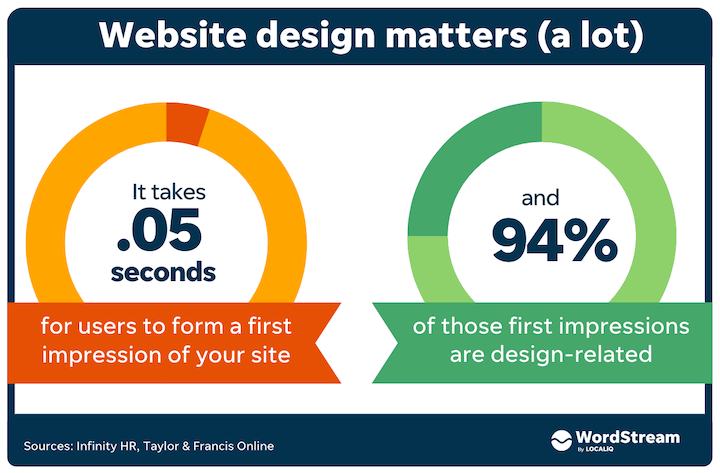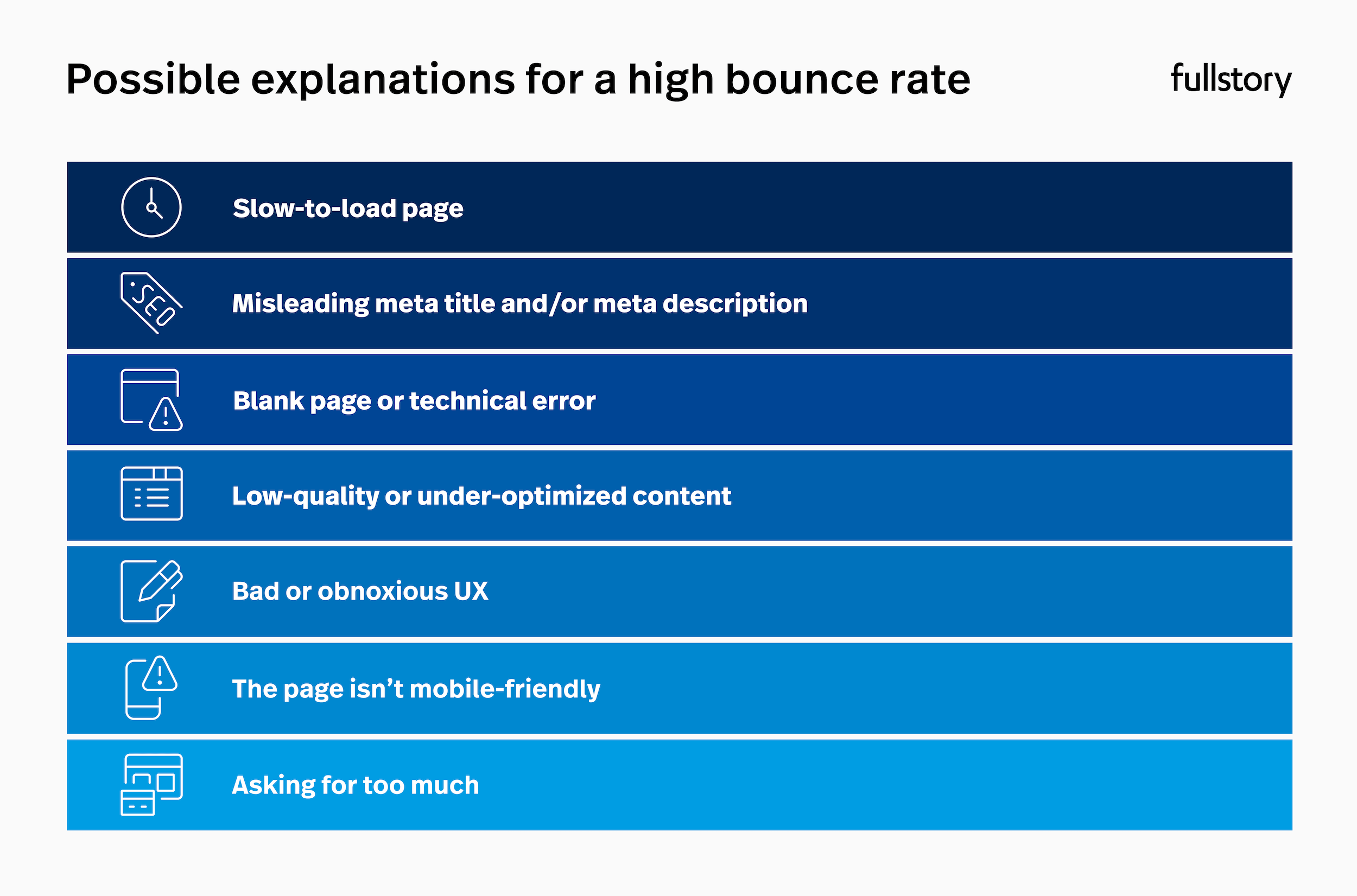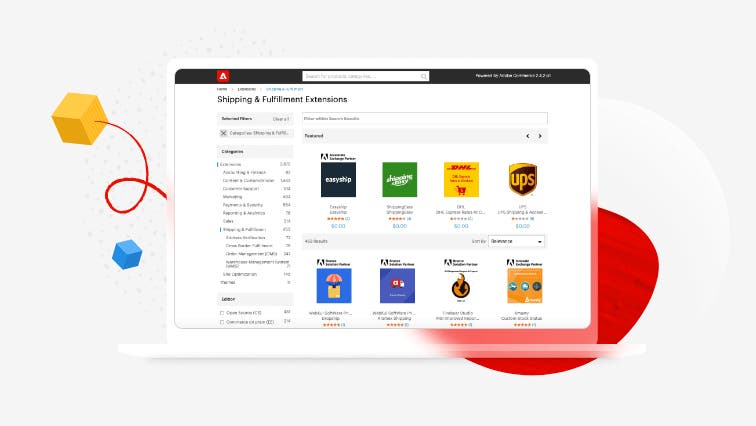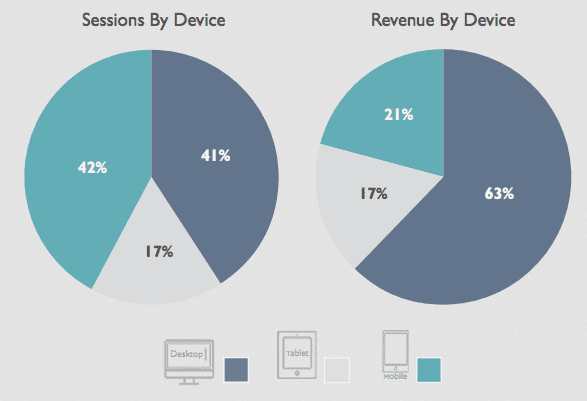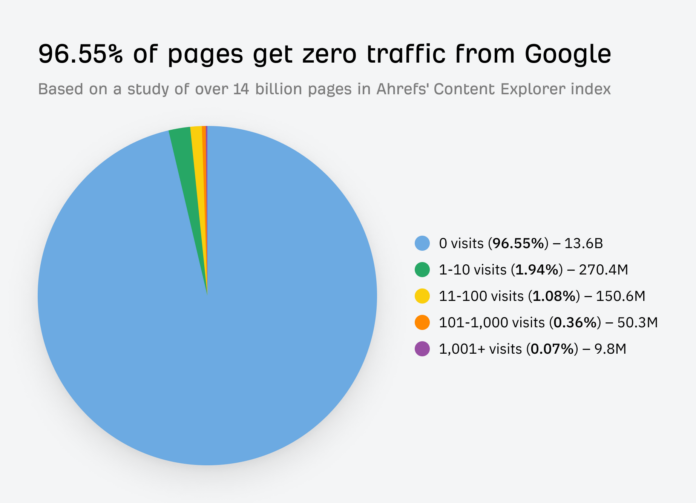“I have an agency background, so I was familiar with a lot of agencies in my area. They’re very agile. They have all the team right there to do whatever you need. We reached profitability at six months in which is very fast. We’re currently operating at 48% above our target. The team knows their stuff.”
Amazon search engine optimization SEO services.
With every passing year, the eCommerce industry grows larger. What's more, that rate of growth shows no signs of slowing, with many estimates suggesting that the industry's value will easily surpass $40 trillion by the end of the decade.
The Best Magento Developers for eCommerce Success
With every passing year, the eCommerce industry grows larger, as this graph, from Precedence Research, proves. What’s more, that rate of growth shows no signs of slowing, with many estimates suggesting that the industry’s value will easily surpass $40 trillion by the end of the decade.
In short, it’s an immensely valuable industry, and many entrepreneurs are eager to get involved and claim their slice of the pie.
To do that, you’ll need an impressive online store, built on a high-quality eCommerce platform, like Magento.
However, making the most of Magento, without professional assistance, isn’t easy. That’s where Magento developers like NEWMEDIA come in. Providing a range of Magento development services, NEWMEDIA’s team can help you extract incredible value from the Magento platform.
Keep reading to learn all about how powerful Magento commerce can be, and discover how top Magento development companies like ours can help you succeed.
Marketing Director
Take your website to the next level with award-winning design.
Get my custom quoteWhat Makes Magento the Right Choice?
WooCommerce. Shopify. BigCommerce. You’ve got options when it comes to picking an eCommerce platform to power your online store. So, you might be wondering what makes Magento the right option.
First, an introduction.
Magento is an open-source eCommerce platform that first launched back in 2008. It quickly gained popularity upon its release, winning multiple awards and even attracting investment from eCommerce giant eBay.
Designed with ease of use in mind, Magento was made to appeal to the widest possible audience. It provides the tools and features that eCommerce business owners need to build and grow their companies. That includes everything from SEO and marketing tools to payment processing and product management.
In 2015, Magento responded to long-term user feedback with the launch of Magento 2. Magento 2 is a faster and all-round better version of the original Magento. It boasts speedier loading times, more flexible architecture, and other advantages.
A few years later, the platform was acquired by tech giant Adobe. It has recently been rebranded as “Adobe Commerce,” though the Magento name still has widespread recognition.
Thanks to its unique advantages, Magento has risen to the top of the rankings of eCommerce solutions.
As this chart from SmartInsights demonstrates, Magento is second only to WooCommerce in terms of the number of leading eCommerce sites that use it.
Ford. Vizio. Helly Hansen. These are just some of the globally known leading brands that rely on Magento to power their existing websites and eCommerce services.
There are countless other eCommerce websites built on Magento, ranging from brand-new startups to long-running, established businesses. It’s the kind of platform that can appeal to almost any kind of eCommerce company, great or small, with peerless versatility.
That’s why you, too, might like to choose it for your store.
What Does a Magento Development Company Do?
We’ve covered the basics of Magento. Next, let’s dig into Magento development companies and what they do.
To put it simply, Magento developers offer a range of services designed to develop and maintain clients’ eCommerce sites and online stores.
While Magento is known for its ease of use and accessibility, a lot of eCommerce business owners don’t have the skills or expertise needed to master it. Nor do they necessarily wish to invest large amounts of time or money in setting up their own IT departments and hiring in-house Magento developers.
So, they turn to Magento development companies instead. Those companies, of which NEWMEDIA is a leading example, provide a multitude of Magento development services. Such services may include web design, web development, installing extensions, optimizing performance, implementing payment gateways, and so on.
Top Magento development companies go even further. NEWMEDIA, for example, isn’t just a full-stack web developer with years of experience in the Magento eCommerce platform. We’re also a leading digital marketing agency, offering marketing services like SEO, SEO, and PPC to help our clients grow their eCommerce projects.
Why Hire Magento Developers for Your Online Store?
With so many options to choose from when setting up your eCommerce store, you may be unsure whether or not Magento is the right choice.
Let’s take a look at some of the key advantages that set the Magento platform apart, and how leading Magento developers can help you make the most of those benefits.
Exceptional Levels of Performance
Ultimately, the No. 1 aspect that separates the top eCommerce platforms from the rest is how well they perform under pressure.
While weaker systems may buckle or break down, Magento is famed for its exceptional standards of performance.
In other words, this platform is fast, stable, and reliable. Which is exactly what you want when you’re trying to build a successful eCommerce brand. After all, if your site is slow to load or has other performance issues, you may miss out on vast amounts of business, every single day.
As this chart from Backlinko, demonstrates, slow load speeds are directly related to higher bounce rates (the amount of people leaving your site almost immediately). Conversely, if you can provide a pleasant, speedy experience for your users, they’ll be much more likely to stick around, browse your catalog, and perhaps even make a purchase.
Magento can help with that. With its scalable, modular architecture, it’s more than capable of coping with high levels of traffic. It won’t struggle or slow down when the going gets tough, keeping your store up and running with minimal risk of delays or downtime.
A reliable Magento development company like NEWMEDIA will ensure that your eCommerce site performs perfectly. We’ll rigorously test and fine-tune your store to guarantee the fastest load times and minimal bounce rates.
Versatile Content Management
Another big benefit of Magento is its built-in content management system or CMS. This allows you to create and modify all kinds of content with ease. You can make new pages, write your own blog posts, add detailed product descriptions, and more.
Magento’s CMS even goes as far as letting users craft their own custom landing pages. The possibilities for this are endless, especially in the hands of a trusted Magento development company.
At NEWMEDIA, for example, we can bring our marketing experience into play when using your store’s Magento CMS. We can create and insert search engine optimization (SEO) content for your blog posts and pages, pushing your store up the Google rankings.
This, in turn, helps you gain more clicks, more visitors, and, ultimately, more customers. Plus, since the system is so versatile and easy to work with, our Magento development team can test out different types of content to see what works best for you.
SEO-Friendly Design
Continuing the SEO theme, every Magento site comes complete with a range of advanced SEO features and tools, all aimed at boosting a site’s SERP (search engine results pages) ranking.
As an example, Magento automatically generates SEO-friendly URLs for the posts and pages you create. That can improve your site’s “crawlability,” effectively giving it a better chance of showing up on Google search pages.
But Magento doesn’t stop there. It also gives you the freedom to fine-tune your posts’ and pages’ meta titles and descriptions. You can pack them with relevant keywords to optimize every page and push them up the Google ranks.
Naturally, the higher you can get in those rankings, the better.
This chart, from Digital Information World, proves just how true that statement is. As you can see, pages that make it to the top spot enjoy a colossal advantage over the rest, with a much higher click-through rate (CTR). The further down you go, the lower that CTR gets, and once you head onto the second page of Google results, the CTR is almost non-existent.
With the SEO-friendly features of Magento 2 and Adobe Commerce, gaining ground in SERPs isn’t as difficult as it can be on other platforms. Leading Magento development companies can use all of their technical expertise to help your store rank as high as possible.
Value-Adding Upsell and Cross-Sell Features
If you’re looking to maximize the profit-making potential of your online store, you have to understand the importance of upselling and cross-selling.
First, a couple of quick definitions:
- Upselling: Encouraging a customer to buy a bigger, better, or more expensive alternative to the product they were considering. For example, a more high-end model of smartphone compared to the one in their cart.
- Cross-selling: Encouraging a customer to purchase additional items related to the product(s) in their cart. For example, if someone is buying a smartphone, the seller could offer them additional items, like a case, charger, and headphones.
These practices are immensely valuable, with a potential 30% rise in revenue through efficient cross-selling alone.
That’s not all. Other stats show that average order values can rise by around 35%, if not more, via upselling and cross-selling. However, many eCommerce business owners struggle to find the right ways to generate upsell and cross-sell opportunities.
Magento (and a Magento development company) can help with that. That’s because Magento commerce comes with built-in upsell and cross-sell features, like the option to display related products to your customers before they check out.
So, let’s say someone is about to purchase an item, like a pair of sneakers, from your store. With Magento’s cross-sell capabilities, you can automatically offer them extras, like insoles or cleaning products to help them care for their new footwear. Or you could push an upsell by inviting them to take a look at a slightly fancier (and more expensive) pair.
A Magento development company like NEWMEDIA can help you extract maximum value from every sale.
Complete Customization Potential
Over 26 million. That’s how many eCommerce sites are around right now, according to figures from MarkinBlog.
What’s more, given the rapid rate at which the eCommerce industry is evolving, that number is growing. New stores hit the scene every single day, adding competition and saturation to the market.
In such a crowded industry, you can’t just have a bland, boring, copy-and-paste store. You need something unique. A one-of-a-kind design that stands out from the crowd and suits the needs of your target audience just right.
Fortunately, another amazing advantage of Magento eCommerce development is its customizability.
Pretty much everything is customizable through Magento 2 and Adobe Commerce. That extends from the look and layout of your store to its navigation and the way you arrange your products. You can also pick from countless shipment methods, payment options, and even languages to suit customers across the globe.
However, getting the exact site you want is tricky alone. A Magento development agency makes it that much easier. You can just tell your chosen Magento developers what you need and let them make it all for you.
In-Depth Reporting and Analytics
If you don’t know what your store is doing well (and what it’s doing wrong), you may struggle to find ways to improve your eCommerce operations.
Enter, reporting and analytics. These useful tools provide valuable insights into your eCommerce store. They help you see which products are selling well, how much traffic you’re getting, where that traffic is coming from, who your buyers are, and so much more.
The importance of this info cannot be understated. There are so many ways you can use analytics to your advantage, helping you make smarter and more informed decisions about how to build your brand and provide premium experiences for your customers.
Well, with Magento, you’ll be able to enjoy an array of reporting features as standard with your store, with no need to buy or install any extra software.
Indeed, Magento’s real-time reporting tools let you discover so much about how your store is doing, all at no extra cost. They can show you how many orders you’ve been getting per day, week, or month, along with the number of registered accounts, insights into best-selling items, and so on.
That’s all good news for you and your chosen Magento development agency. Your professional partners will be able to read reports and dig into the analytics to discover actionable data and find the best ways to grow your brand.
A Global eCommerce Platform
The rise of eCommerce is a global phenomenon.
All over the world, more and more people are browsing and buying things digitally, on their computers and mobile devices. Sales are rising, and there’s no sign of them slowing down, as this FirePush graphic demonstrates, showing the value of eCommerce industries around the globe.
As such, if you wish to maximize your profits in this industry, it makes a lot of sense to offer your goods to an international audience. That gives you millions more potential customers and a much higher ceiling in terms of sales figures and net profits.
Fortunately, Magento is a fine fit for brands that are looking to go global.
It’s got built-in support for multiple languages, along with dozens of international gateways. It also works well in conjunction with various international payment gateways, paving the way for smooth, speedy, and seamless payments from one country to the next.
With help from the right Magento development agency, you can even configure your store to automatically calculate relevant sales taxes for buyers based on their locations. This helps you maintain compliance with international standards while selling goods around the globe.
Mobile-Friendly Development
Mobile devices are playing an increasingly important role in modern life. We use them for everything, from keeping in touch with friends and family to checking the weather and finding our way around new places.
They’re also used by millions of people daily for browsing and buying items from online stores, and we’ve got the stats to prove it.
This chart from Statista shows just how big mobile eCommerce is becoming, with mobile users now accounting for around 60% of sales.
As the chart shows, mobile eCommerce figures are rising, year on year, with estimates predicting future increases in the years to come. Thus, any eCommerce business owners need to be mindful of making sure they cater to the mobile user community.
That means making sure your site is responsive and ready to function without fail on devices like phones and tablets.
Luckily, this is another aspect in which Magento excels. Its responsive design allows it to automatically adapt and adjust your store to provide top-quality user experiences on smaller screens.
What’s more, Magento’s mobile app framework even gives you the possibility to create your own mobile apps. That can provide customers with even more ways to connect with your brand, along with additional sales channels for you to exploit.
Trusted Magento development companies like NEWMEDIA can assist with mobile app development and optimization. We can ensure that your site and store will function perfectly on any device, improving customer satisfaction and reducing bounce rate in the process.
State-of-the-Art Security
The number of cyber-attacks is rising. Every day, thousands of new victims are targeted, and eCommerce businesses are no exception.
In fact, businesses like these often represent prime targets for cybercriminals. If they can hack their way into an eCommerce store, they may be able to steal valuable customer data or even hold entire sites at ransom until the owner pays up.
This is something that those in the eCommerce world simply cannot ignore.
This chart from GoodFirms illustrates the issue perfectly. Over 60% of eCommerce organizations have been victims of cyber threats. That means you’ve effectively got more chance of being targeted by a cyber-attack than not being targeted if you’re in this industry.
Fortunately, there are ways to defend your store, your customers, and your data against hackers and malware. Magento even provides some helpful cybersecurity eCommerce solutions of its own.
It ranks among the most secure eCommerce platforms available today, boasting key features like two-factor authentication and high-end data encryption. Magento is also regularly updated with security patches to safeguard users against the likes of data leaks and ransomware attacks.
Plus, Magento gives users ways to customize their security settings. You can adjust security permissions on the fly, controlling who has access to your store’s backend and what level of access they enjoy. That can help you shut down any weaklinks or possible gaps that hackers may try to exploit.
Again, top Magento development companies are there to help with all this. They can configure your store’s security settings accordingly to power up your protections.
An Infinitely Scalable Solution
What are your long-term plans for your business? In most cases, the answer will be “growth.” That’s according to a survey of business owners’ priorities, with the top responses listed in the IT World Canada chart below.
Naturally, many business owners dream of growing their brands, building up their market share, and establishing themselves within their industry niche. Growth doesn’t just bring more profit. It brings security and stability, too.
But to grow at a reasonable rate, you need an eCommerce platform that can foster that growth and adapt to it.
Again, Magento leads the way. It’s easily one of the most scalable solutions for eCommerce development, thanks to its clever modular architecture.
Even as your site gains popularity and traffic levels start to surge, Magento sites are built to cope. They can easily scale up to suit your evolving status in the industry with minimal delays and downtime risks.
Magento development experts like NEWMEDIA will be there to support your store’s growth. We can make the necessary “under-the-hood” changes to your store to ensure it adapts appropriately, helping you build up your brand quickly and efficiently.
Seamless Marketplace Integration for Multichannel Sales
One of the secrets to success in eCommerce is visibility. The more visible you make your brand and your products, the better chance you’ll have of hitting your sales targets and building a successful business.
When it comes to maximizing visibility, a multichannel sales approach is vital. That means marketing and selling your products across a range of platforms, with a major focus on the big players in the game like Amazon.
These Fit Small Business stats on Amazon show just what a powerful eCommerce force it is. Two billion monthly visits in the U.S. alone. That’s a gigantic potential audience for you to market to, and if your store and goods aren’t listed on Amazon, you’re missing out on countless possible sales.
The same goes for other platforms, like eBay.
Well, Magento 2 and Adobe Commerce are more than ready to help you connect with those big sales sites. With built-in marketplace integration functionality, your Magento store can easily link up with major marketplace platforms.
This helps you maximize your visibility in no time, multiplying your prospective audience in an instant. A trusted Magento development partner like NEWMEDIA helps you take full advantage of your multichannel approach, assisting with everything from store set-up to inventory management, cross-channel marketing, and more.
Thousands of Extensions
We’ve already highlighted the unique versatility of the Magento (Adobe Commerce) platform. But it’s only when you start to dig into the giant library of Adobe Commerce extensions that you realize just how much is possible with a Magento store.
There are thousands of available extensions to consider installing and using to enhance your eCommerce business when you build it with Magento.
Some offer advanced email and SMS marketing to help you reach a broader audience and generate leads. Others are designed to automatically send messages out to users who abandoned their carts, potentially bringing them back and recapturing those lost sales. There are extensions that sync up your contact lists across platforms, provide AI-powered customer support, facilitate faster and more secure payments, and so on.
The options keep on going, and these extensions effectively give you countless ways to customize and fine-tune your store.
With the help of a Magento development provider and Adobe Commerce extensions, creating the ultimate shopping experience is easier than ever.
Versatile Payment and Shipping Solutions
There was a time when the vast majority of online payments were simply made by card.
But times have changed. These days, there are many more payment methods that buyers can utilize. Many favor digital wallets like PayPal, Venmo, Google Wallet, and Apple Wallet, as this chart from Upgraded Points shows.
Some shoppers will even abandon their carts entirely if they see that their payment method of choice isn’t available in an online store. As such, the onus is on store owners to ensure that they provide the widest choice of payment options possible.
Fortunately, Magento integrates seamlessly with dozens of payment gateways, from PayPal to Stripe.
Not only that, but this eCommerce platform also supports different shipping solutions. With the aid of Magento developers, you can integrate your site with the likes of UPS, DHL, FedEx, and more. That not only helps to speed up and simplify the order fulfillment process but also empowers your buyers to pick a delivery method that suits their needs.
Attractive, Engaging Designs
Since the eCommerce industry is so competitive, with countless new stores springing up daily, you’ll struggle to succeed with a store that’s aesthetically unappealing.
Indeed, stats (seen below, from WordStream) show that three in four users will judge a business’s credibility based on how its website looks. In other words, if your site is ugly, bland, or poorly designed, you risk making a terrible first impression and putting people off your products and services.
Fortunately, Magento developers can help you craft a site that is eye-catching and appealing. Given that this platform provides near-endless customization, it’s easy to create the kind of site that will help you draw in your target audience.
A trusted Magento development agency will help you add branding across your site, set up a seamless navigation system, and pick the perfect color palette to produce a positive first impression. With a beautiful and well-designed online store, making sales should be much easier.
See Our Portfolio
Molly Hall Dorais
Colorado Rocky Mountain School
Get a beautiful, functional website optimized for SEO and mobile.
Request a proposalNEWMEDIA's Magento Development Services
At this point, you’ve seen plenty of reasons why Magento is the most appropriate option for many online stores. You’ve also seen key reasons why you should work with Magento web development experts, who can help you maximize your potential on this eCommerce platform.
But you might still be wondering about what kinds of Magento development services NEWMEDIA has to offer.
Let’s take a look.
Magento Web Design
Above, we talked about how much first impressions matter in the world of eCommerce.
A poor first impression can put someone off your site in less than a second. That’s not hyperbole. Stats from WordStream(shown below) demonstrate just how quickly people make up their minds about a website.
In short, you don’t have much time to make a mark on new visitors. If you fail in the first impression stakes, there’s usually no coming back from that. Your visitor will simply hit the “Back” button and find another store. You won’t get a second chance to impress them.
That’s where web design comes in as one of the most important Magento development services to invest in.
So, what is it? Basically, think of web design as the process of creating the best possible user experiences for people who visit your store. It’s all about the customer-facing components and the look and feel of the store.
At NEWMEDIA, we’re extremely experienced in eCommerce web design. We know what works and what doesn’t. So, we can use our expertise to design a beautiful, eye-catching, and engaging store that’s sure to help you get results and produce the most positive first impressions.
Magento Web Development Services
Web design and web development are two terms that people often get mixed up. It’s easy to understand why. They sound so similar and both revolve around making changes to a website to help it work smoothly and get the best results for the owner.
However, there is a distinct difference between web development and design.
Design, as outlined above, is concerned with the visuals of a site and the experience of using it.
Web development, meanwhile, is more about the “behind the scenes” or backend side of your site. The inner workings. The “under the hood” systems and components that keep everything ticking smoothly. It’s about building fully functioning sites and maintaining them.
It may not be as flashy or aesthetically pleasing as design, but proper web development is crucial for the success of any Magento project.
When you’re running an online store, you’re not just showing people posts and pages for them to browse. You also need to have systems in place that let them securely create their accounts, make purchases, and so on. Plus, you need your site to be able to handle orders, update the inventory accordingly, and compile a database of customers and sales.
In short, there are a lot of behind-the-scenes elements that keep any eCommerce project running.
NEWMEDIA’s web development experts can help you handle them. We can take care of the backend complexities to keep your site operational, letting you focus on more engaging and enjoyable aspects of running your store.
Performance Optimization
Obviously, you need your store to function as intended if you hope to make sales and gain customer loyalty.
That’s the bare minimum.
However, to truly elevate your enterprise ahead of the competition, your store shouldn’t merely be functional. It should be optimized.
Every process should be fine-tuned and streamlined to the highest degree. Pages should load quickly, users should be able to navigate from page to page in a flash, and filters and search tools should allow them to find exactly what they want when they want it.
That’s where performance optimization Magento services come in.
The FullStory graphic above shows how poorly optimized stores often struggle with bad bounce rates. Users will quickly evacuate any site that has slow-loading pages, technical errors, or low-quality, poorly-optimized design elements.
But, with NEWMEDIA’s optimization eCommerce solutions, you won’t have to worry about any of that.
We’ll go deep into your store’s inner workings, finding all the right buttons to press and dials to turn to ensure that it runs super smoothly. We’ll take your page load times to lightning-fast levels, eliminate errors, and ensure that customers feel right at home from the moment they arrive on your site.
Software Integration
Earlier on, we discussed the versatile nature of Magento, talking about how well it works with other systems. It can fuse seamlessly with major marketplaces like Amazon and eBay, for instance, while also working well with many other tools and apps you might use in your eCommerce endeavors.
However, even though Magento tends to play nicely with other apps, that doesn’t mean it’s always easy to set them up.
Often, installing or integrating a new tool or solution takes a certain level of time, effort, and expertise. It’s rarely something that business owners can simply set up on their own, without encountering one or two problems along the way.
That’s where we come in. Part of NEWMEDIA’s holistic approach to eCommerce development solutions includes software integration services. In other words, we’ll configure your Magento 2 or Adobe Commerce store to run seamlessly with other apps and eCommerce solutions.
With our help, your store can reach whole new heights of functionality.
Extension Selection, Installation, and Implementation
The massive extensions library is another crucial feature that helps to set Magento 2 and Adobe Commerce out of the pack of eCommerce platforms.
From customer support extensions to tools that aid with shipping, fulfillment, marketing, site optimization, payment processing, and accounting, the list goes on. No matter what plans you have for your site or how you hope to enhance it, there’s most likely an extension that can make it happen.
Plus, Adobe Commerce runs a tight ship, taking the time to carefully curate its marketplace and only allowing extensions with high standards of security, stability, and design.
However, picking from such a vast array of e-commerce development tools isn’t always easy. You might not know which one suits your needs best, or you could waste time with extensions that aren’t fully suited to your audience and situation.
Again, NEWMEDIA is here to help. As part of our e-commerce development services, we can identify ideal extensions to improve your site’s performance, functionality, and core web vitals. We can then install and configure the right tools to take your site to the next level, taking care to avoid any compatibility clashes or issues.
Implementation of Payment Gateways
As stated above, one of the best aspects of Magento 2 and Adobe Commerce is how it supports so many payment methods. Thanks to that, you can offer a whole host of solutions to your customers, granting them the freedom to pay their way, rather than being forced to use one particular option.
Stripe. PayPal. Credit card. Debit card. There are plenty of payment types that work just fine through Magento.
However, you’ll need a Magento developer to properly install the coding needed to set up those payment systems and facilitate speedy and secure transfers of funds.
As well as finding and installing the correct payment extensions and plugins to support your site, NEWMEDIA also configures the backend side of payment processing. We can secure SSL certificates for your online stores to ensure that payments are safe and customer details are encrypted. Plus, we can take care of database creation for safe storage of all your customer details.
Thanks to that, you won’t have to worry about any payment-related problems coming up during your store’s lifecycle. Customers should be able to enter their payment details and transfer money easily and safely for whatever they want to buy. In the long term, that can help you gain a greater number of customers and foster loyal customer relationships, bringing buyers back again and again.
Browser and Device Testing
Once upon a time, the vast majority of eCommerce transactions and browsing sessions took place on computers and laptops.
But times have changed. Now, as the charts below from SmartInsights show, many users prefer to do their online shopping via mobile devices.
In fact, more than half of all eCommerce sessions occur on either a tablet or a phone. When it comes to actually making purchases, a majority of people still prefer computers. But, even with that said, around 4 in 10 sales still occur on mobile.
For you, as an eCommerce business owner, that means you have to think about the large percentage of your audience that will browse your store on a small screen. You have to cater to them, to ensure that your store runs smoothly on tablets and phones and that no random bugs or hiccups occur to push people away.
Magento is excellent in terms of mobile compatibility. However random bugs and issues may still emerge over time, even in leading Magento 2 and Adobe Commerce stores.
That’s why you have to hire Magento developers like NEWMEDIA. We take the time to rigorously test and inspect your site’s performance across various devices. We check to see if your site loads smoothly and navigates correctly on phones and tablets. If we spot anything that doesn’t seem right, we take the necessary steps to root out the cause and find a solution.
The result? An online store that is truly responsive and ready to meet the needs of today’s eCommerce audience.
Search Engine Optimization (SEO) and Digital Marketing
Even if you’ve got a beautifully designed Magento 2 or Adobe Commerce store, combined with amazing products, you may still struggle to succeed in the eCommerce world.
Why? Lack of marketing.
It’s one of the top reasons why businesses fail. Even great business ideas can be brought down if they don’t have strong marketing campaigns and SEO to back them up these days.
Just look at this chart from Ahrefs:
It makes for frightening reading, with over 96% of web pages getting absolutely zero organic traffic via Google.
If your site falls into that “zero visit” category, you’ll struggle to make sales and build any kind of following.
Fortunately, NEWMEDIA isn’t just a Magento web development company. We’re also highly experienced when it comes to marketing and SEO.
So, along with providing web development and design services, the NEWMEDIA team can also help you market your store. We can establish strong SEO campaigns to propel your pages up the rankings, as well as set up ads and marketing campaigns to raise awareness of your products.
With our help, your Magento 2 store has the best chance of success.
What Customers Say About Us
Randall T.
Transparent web design pricing tailored to your business needs.
Book a free consultationNEWMEDIA - The Perfect Magento Development Agency
Overall, there’s no doubt that you need to work with a trusted Magento development company if you wish to truly make the most of this platform. Only with the aid of proven professionals can you get the most attractive store design, the most flawless site operations, and the most effective eCommerce development.
Here’s why NEWMEDIA is the best choice.
We're No. 1
NEWMEDIA is ranked as a leading marketing and development company on top-ranking sites, Clutch and UpCity.
We Work With the Best
Delta. Six Flags. Ford. Amtrak. CBS. All recognizable brands, and all have turned to NEWMEDIA to help with their digital brand building and web development.
We Provide Every Service You Could Need
From SEO and marketing to Magento web design, NEWMEDIA offers a complete array of services to support your e-commerce development.
Turn your website into a revenue driver with our expert design and marketing services.
Get my custom website quote